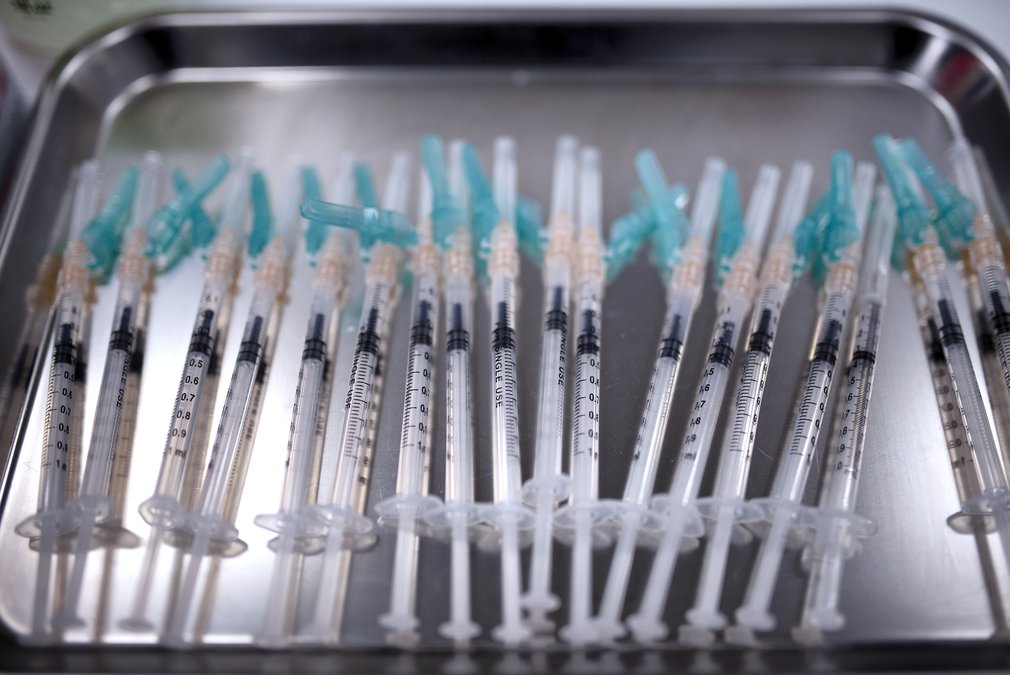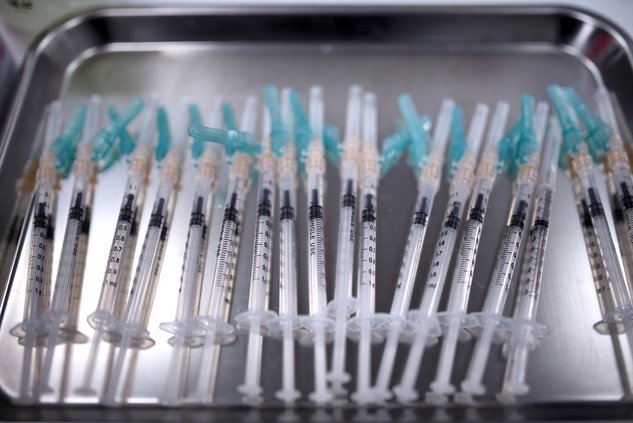ATLANTA — Georgia is opening up four mass vaccination sites to inoculate people against COVID-19, with locations chosen to try to increase the lagging share of Black and Latino residents who are getting the shots.
Gov. Brian Kemp said at a news conference Thursday the sites will be up and running on Monday. They will be in Albany, Macon, Habersham County and at the Delta Flight Museum near Hartsfield-Jackson International Airport in Atlanta.
The state is also rolling out a registration website, myvaccinegeorgia.com , that will let people register for the sites. The state is currently limiting the vaccine to medical workers, emergency workers, nursing home residents and people 65 and older, but people outside those categories can also sign up on the website to be notified when it's their turn.
Kemp and other state officials have been continually asked when the state will consider adding more people to the eligible list for the vaccine or move to the 1B phase of the rollout, which would include essential workers.
Northeast Georgia Health System officials said they are awaiting info from the state on how the rollout beyond the current 1A+ eligibility will be handled.
District 2 Public Health spokesman Dave Palmer said Kemp and Department of Public Health Commissioner Dr. Kathleen Toomey will be in charge of that decision.
Kemp spoke on Monday, Feb. 15, in Gainesville regarding vaccine distribution in the Latino community and the broader poultry industry.
“The poultry industry (food production and supply) is part of the essential workers identified in Phase 1B,” Palmer wrote in an email. “As such, public health, as well as other providers in the area, will work with essential businesses to vaccinate workers when the time comes to do so.”
Although Georgia doesn't list an identifiable race for about 16% of people who have been vaccinated, the numbers that are available suggest that Black and Hispanic residents are significantly less likely to be getting shots than White people. Kemp said the site near the airport was aimed at predominantly African American Clayton County, where vaccine numbers are lagging, while the one in Habersham County will serve an area with a large Latino population concentrated in chicken processing plants.
The initial goal is for the sites to administer a combined 22,000 vaccines a week, with the ability to increase capacity when additional supplies become available.
Hall County has outpaced surrounding counties in terms of vaccinations per 100,000 people.
“There are more enrolled vaccine providers in the Hall/Forsyth County area than other counties in our district,” Palmer said. “This does offer more opportunities for residents to find the vaccine.”
In Hall County, 41,716 doses have been administered, including 28,822 first doses and 12,894 second doses, according to data presented on the Department of Public Health website. That’s 20,997, per 100,000 people. Forsyth’s per capita rate is just 9,537.
Kemp and Toomey said demand remains overwhelming among eligible groups and that expansion to groups including teachers remains some weeks off, despite pressure from superintendents and teacher groups.
"We are very, very concerned that many, many people who still want to be vaccinated are still waiting," Kemp said.
Toomey said it's possible that as many as 80% of Georgia's 1.5 million residents older than 65 will seek to be vaccinated. Kemp also said there are anecdotal reports that some emergency and medical workers who held off on the vaccine are now coming in for shots after seeing coworkers get both doses and suffer no ill effects. More than 1.1 million initial doses have been administered in Georgia.
Kemp said the state would be finalizing plans for expanded vaccination criteria within the next two weeks.
He also downplayed demand among teachers, noting a statewide survey of school districts only showed 45% of respondents, or fewer than 80,000, wanted to receive vaccines.
"There's not as much demand there as some may have thought," Kemp said, adding the state would use the survey for teacher vaccination planning.
Vaccine supplies are ticking up slowly, with total doses under state control expected to rise to 196,000 next week, thanks in part to federal directives to extract six doses instead of five from some vials. Public Health Commissioner Kathleen Toomey said supplies are lagging this week because of winter weather delays. But she said she expects the state will have a one-time bump in doses available next week as weather eases. She said the state hopes for a "large number of increased doses" by April 1 or sooner.
In addition to the state-controlled doses, pharmacies at 184 Walmart and Kroger stores will begin receiving direct shipments. So will two federally qualified health clinics — St. Joseph's Mercy Care, which has clinics in Atlanta and Chamblee and Swainsboro-based East Georgia Healthcare Center, which operates 13 clinics in counties inland from Savannah.
Kemp said the state would prefer to route additional vaccine supply to state and local sites instead of having the Federal Emergency Management Agency set up its own sites, as President Joe Biden's administration has proposed.
"We have sites that are up and running now," Kemp said. "We can scale these sites."
Georgia is approaching 1 million confirmed and suspected cases of COVID-19, with more than 16,000 confirmed and probable deaths. The number of newly reported cases has fallen by nearly two-thirds since peaking in early January, now running at about 3,500 cases a day.
The share of positive molecular tests in Georgia fell below 10% this week for the first time since December, although experts say that number needs to fall below 5% to be assured there aren't large numbers of infected people going untested. The number of hospitalized COVID-19 patients is now below 3,000, falling from a peak of about 6,000 in mid-January.
Times reporter Nick Watson contributed.

